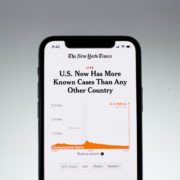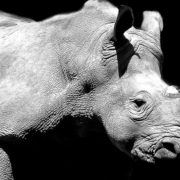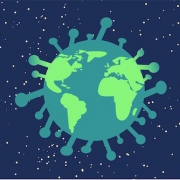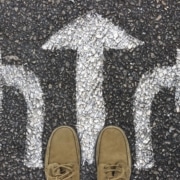Culture Explains Our Weak Response to the Coronavirus

The sneakiness of the novel coronavirus has wreaked havoc worldwide. Yet what’s striking is how the pathogen’s destruction has varied across regions. Whilst East Asia has largely got a grip on the virus, Europe is still reeling. The United Kingdom recently pipped Italy to claim Europe’s highest death toll, with a tally that dwarfs all but a handful of nations. The United States has established itself as the world’s coronavirus leader— although not in the way President Trump would want us to believe. And Brazil appears to be the new epicenter of the pandemic, with growing fears that their healthcare system will not survive the oncoming onslaught. This raises the question: Why has Europe and the Americas been hit so much harder by the pandemic?
To help make sense of this, Michele Gelfand and her colleagues have recently released a preprint which explores the role of culture in our response to the outbreak. Gelfand, a cultural psychologist and author of Rule Makers, Rule Breakers, has dedicated her life’s work to solving what has long been considered an enigma: Why do cultures differ? Having conducted research across diverse societies, Gelfand discovered that cultural differences essentially boil down to two dimensions: how “tight” or “loose” cultures are. Tight countries have many rules in places, where punishments are strictly enforced (think of Singapore, where chewing gum is illegal). Citizens in tight countries are used to a high degree of monitoring aimed at curtailing bad behavior. In contrast, loose societies have laxer rules—and are more tolerant and accepting of transgressions (think of Italy and Spain).
The team found that tightness—and government efficiency—interacted to predict infection rates. Gelfand suspected tightness may only provide protection when governments also have the expertise and resources necessary to respond in a timely manner. This relationship strengthened with more economic and demographic information fed into their equations. Countries with tight cultures and highly efficient governments had significantly less infections and overall deaths.
For the countries with inefficient governments, tightness was actually associated with slightly more infection rates. Conversely, government efficiency with low levels of tightness was not significantly related to infection rates (but infection rates were significantly and negatively related to cultural tightness). The research team’s algorithms revealed several other important factors that predict infections. Specifically, they discovered that developed countries with high levels of wealth inequality and older populations had the highest number of infections and subsequent deaths (which is not surprising, as we know COVID-19 is a disease that mainly kills the elderly).
Where do cultural differences come from? Gelfand has found that they are not random. Rather, countries with the most draconian laws and harshest punishments are those that have historically faced a barrage of existential threats. These persistent foes include famine, natural disasters, invasions from rival tribes—and you guessed it—outbreaks of infectious disease.
Because these threats are present to varying degrees, our cultural practices and social norms have evolved accordingly—tightening up in the presence of existential threats, which provides protection against danger. In contrast, societies that have faced fewer threats have experienced the luxury of loosening—cultivating social norms that favor freedom and self-expression.
As with all things in life, there’s a clear trade-off. Tight cultures instill order and stability, at the cost of being less tolerant and creative. On the other hand, loose cultures are open and dynamic, with the drawback of being more chaotic and disorderly. Gelfand makes clear that, despite some overlap, tightness and looseness transcends political ideology and does not correspond with the “left-right” political spectrum.
This trade-off between tightness and looseness was clear during the coronavirus’ initial exponential explosion. Famously tight countries such as Singapore mobilized an effective response early on. Meanwhile, looser countries like Italy did not initially take the threat as seriously—and as a consequence are still suffering.
Gelfand and her colleagues crunched government statistics on the coronavirus worldwide, and cross referenced this with their data on cultural differences. They also unearthed countries underreporting coronavirus cases, correcting for this in their analysis, and created a computer simulation to model how people respond to infectious outbreaks. The team tailored the Prisoner’s Dilemma, one of game theory’s iconic strategic games, to run the simulation.
During its early stages, tight and loose cultures exhibited similar levels of cooperation. However, as time passed, big differences emerged. Automatons in tight cultures found it easier to copy each other’s cooperative behavior—and therefore had higher rates of survival. In contrast, those in loose cultures didn’t fare so well.
Gelfand’s simulation suggests that tight cultures may mount a more effective response to epidemics because people in tight cultures are more likely to conform and copy people’s survival strategies. If this is correct, tightness may only be effective when social norms championing cooperation are established early on in a pandemic. If they aren’t, tightness may not provide any additional protection.
One needs to be careful commenting on an unpublished paper. However, appreciating both the rigor of the research and the extraordinary circumstances we now face, drawing practical implications from their paper seems justified. What screams out is the need for Western democracies to tighten up accordingly.
Several European countries have experienced intolerable suffering from the avalanche of coronavirus cases, and had no choice other than imposing draconian measures. Conversely, countries such as the United Kingdom have adopted a more hands-off approach—where the rules that have been put in place are more lax and less strictly enforced. Coincidently, the United Kingdom is now one of the world’s worst affected countries.
For nations such as the UK to overcome the pandemic, we’ll need to tighten up our cultural practices to minimize disruption and protect vulnerable people from future outbreaks. I am not advocating for our governments to become more autocratic—far from it. Authoritarianism was controlled for in Gelfand’s study, which didn’t actually slow the rate of infections. While it’s important for governments to promote practices that stop the virus spreading, Gelfand’s team argue that heavy handed responses to the pandemic may cause irreparable harm. Also, the excessive use of force can hamper innovation—which becomes increasingly important when devising long-term solutions.
Rather, we should aspire to what Gelfand has coined as “cultural ambidexterity.” That is, we should retain the positive aspects of our loose cultures—such as tolerance for diversity and greater creativity—whilst also having the flexibility to tighten up when necessary. New Zealand, for example, is one of the loosest countries in the world. Yet under Jacinda Ardern’s leadership, Middle Earth mobilized an effective response to the coronavirus early on. New Zealand now has one of the lowest death-rates among Western nations, and Kiwis are even bracing themselves for coronavirus “elimination day.”
To successfully navigate the pandemic, we must ensure that the rules in place are properly and consistently enforced. However, we also need to calibrate our tightness to reflect the actual level of risk—tightening the rules when cases flare up, and relaxing them once the threat from the virus wanes.
As Europe and the United States begin easing restrictions and reopening for business, risks abound. Management gurus are purporting that the work office “is now dead.” Although there’ll certainly be long lasting changes to the way we work, the end of the office is not clear-cut. Although the pandemic has demonstrated that whole companies can successfully work from home, there are several reasons why people will want to meet their colleagues and clients in person (at the end of the day, we are social primates).
By understanding the hidden forces of social norms, business leaders can tilt their companies towards the ideal tight-loose balance in the age of the coronavirus. I’ll provide a couple of examples.
Before the pandemic, people who came into work sick were frequently deemed more loyal and dedicated employees (particularly in tight corporate cultures, where taking time off was seen as slacking). However, this is nonsensical. Not only does coming into work sick jeopardize your recovery and therefore productivity, it also risks spreading the illness to other employees. In the wake of the coronavirus, this social norm needs to be flipped: No more brownie points for coming into work sick, but rather ostracism for putting other people’s health at risk.
Whilst we need to tighten up our hygiene standards, we also need looseness to foster innovative working practices. If we cannot resume business without causing a resurgence of new cases, we face a bleak future of continuously stalling and restarting our economy.
A team of Israeli scientists have proposed a rather ingenious solution to this dilemma, by exploiting a key property of the coronavirus: its latent period. On average, there is a three-day window between someone being infected with the virus and actually being able to spread it to others.
The scientists’ solution is to work in two-week cycles, in a system dubbed “10:4.” In this arrangement, people work on the job as normal for four days straight. Once they’ve passed this latency period and are therefore possibly infectious, they then work from home in isolation for ten days. The scientists’ models suggest that this two-week working cycle can drastically reduce infection rates, causing cases to drop off a cliff.
Time will tell whether this working arrangement is actually effective. But it is precisely this kind of innovative thinking that’ll help us overcome the coronavirus.
Max Beilby is a business-psychology practitioner working in the banking industry. He also runs the blog Darwinian Business, which explores business from an evolutionary-psychological perspective, and more.
This article was adapted from a post on Darwinian Business.




 Photograph by Nathan Cowley / Pexels
Photograph by Nathan Cowley / Pexels


